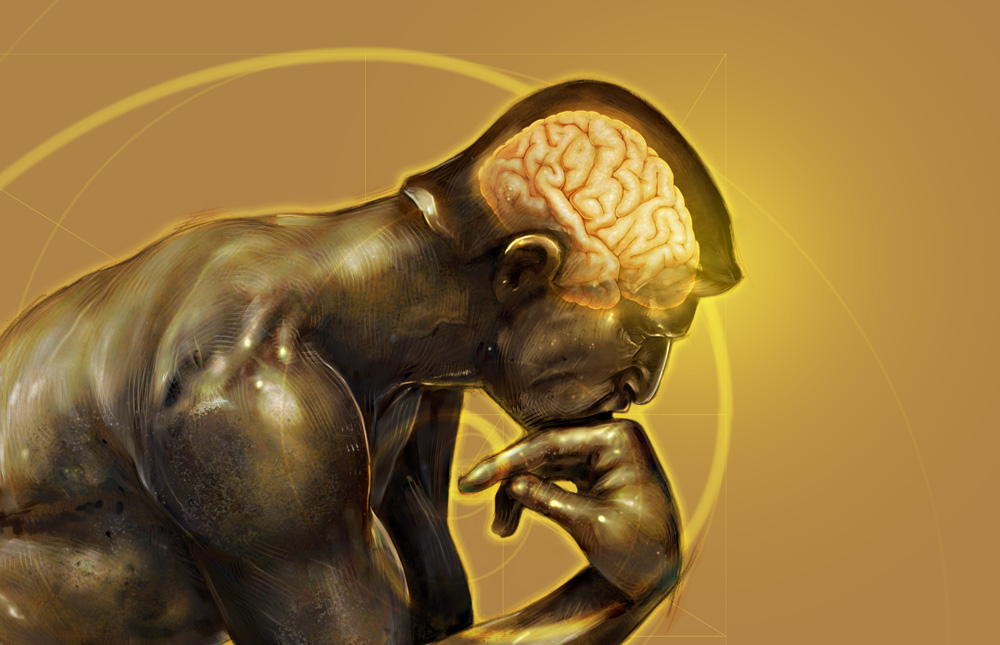
Want a bigger, better, healthier brain? Get serious about your spirituality and avoid the ‘I’m spiritual but not religious’ canard, which statistically leads to a higher instance of mental problems. True theology and praxis really is therapeutic, after all.
The reason that religion or spirituality appears to protect people with a familial risk of depression from developing the illness may be because religion or spirituality thickens the cortices of the brain, Columbia University researchers Lisa Miller, Ph.D., Myrna Weissman, Ph.D., and colleagues report in JAMA Psychiatry. Their study included 103 adults who were either at high familial risk or low familial risk for depression. The importance they placed on religion or spirituality was evaluated at two time points during a five-year period. The thickness of their brain cortices was measured with MRI at the second time point.
The researchers found that the brain cortices of subjects who placed a high importance on religion or spirituality were thicker than the brain cortices of those who did not, but that, in addition, the cortices were especially strong in those individuals who placed a high importance on religion or spirituality and who had a high risk of depression.
“Our findings therefore may identify a neural pathway through which the personal importance of spirituality or religion protects against major depressive disorder in people who are otherwise predisposed to developing it,” the researchers concluded.
“This study points to measurable, beneficial effects of presumably healthy spirituality, especially for individuals with biological predispositions to depression,” Mary Lynn Dell, M.D., told Psychiatric News.
She is a professor of clinical psychiatry and pediatrics at Nationwide Children’s Hospital and Ohio State University and has studied spirituality and religion. The study, she continued,
“adds to substantial and growing evidence that psychiatrists should support healthy development in that sphere of patients’ lives. Studies such as these may also inform the particular ways and methodologies religious professionals…employ to care for and work with depressed individuals, while at the same time staying true to their particular religious beliefs and traditions.”
To read about a previous study of this topic by Weissman and colleagues, see the Psychiatric News article “Depression Recurrence Less Likely When Religion Is Important.”